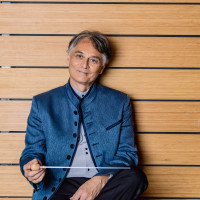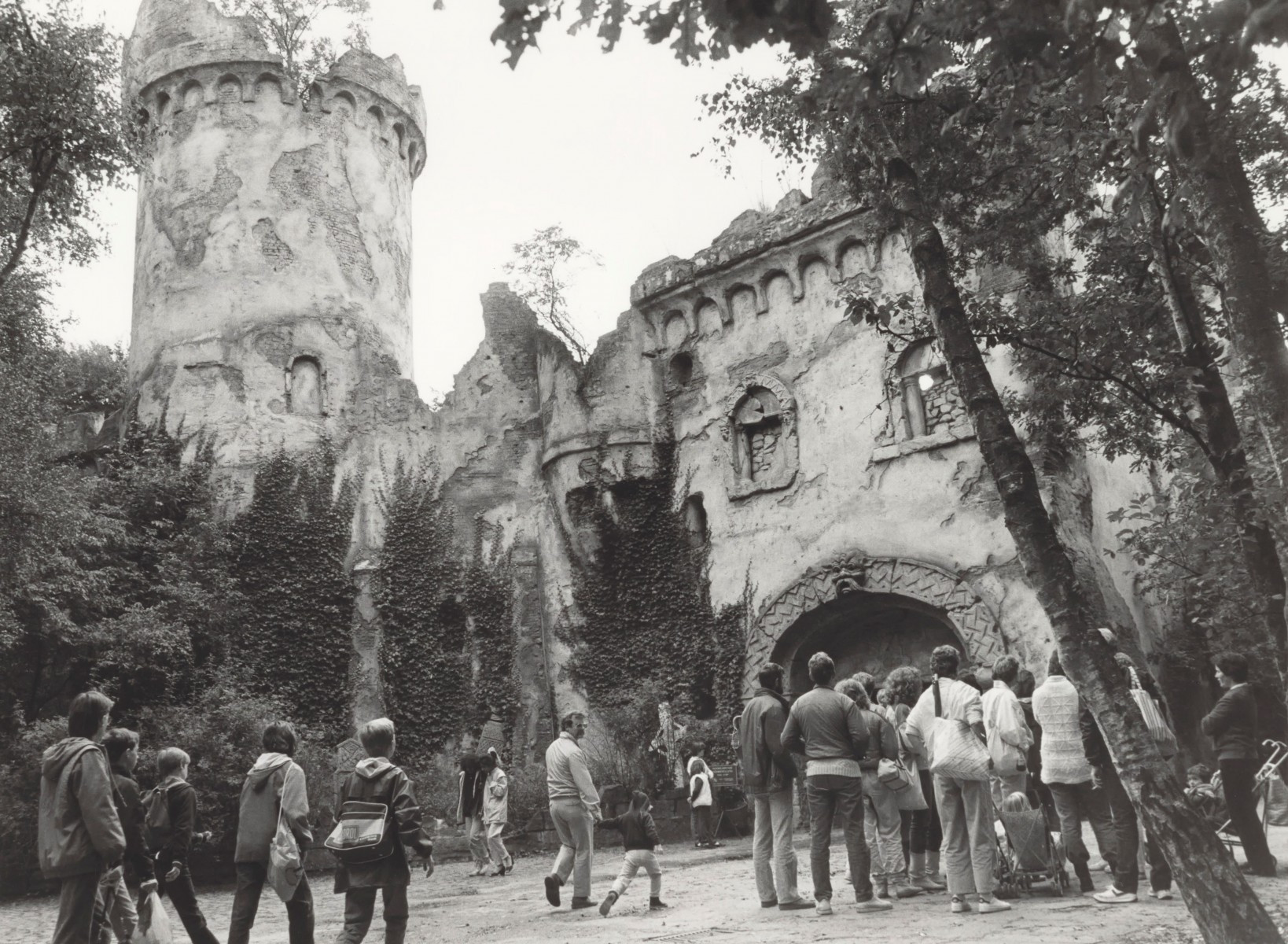Program Booklet
Prinsjesdag Concert
Tuesday Sept. 16
20:15
hour until approximately 10:00 p.m.
At the Prinsjesdag Concert, we celebrate a new year and a new musical season, with festive, imaginative and romantic sounds.
📳
Please put your phone on silent and dim the screen so as not to disturb others during the concert. Taking photos is allowed during applause.
Programme
Joe Hisaishi (1950)
Merry-Go-Round of Life from the film 'Howl's Moving Castle' (2004, arr. Marijn van Prooijen)
Performed by The Residents Academy, Stadsorkest The Residents, Johan de Witt Scholengroep and Residentie Orkest.
Camille Saint-Saëns (1835-1921)
Danse macabre (1874)
Violin solo: Wouter Vossen (concertmaster)
Henryk Wieniawski (1835-1880)
Fantaisie brillante on themes from Gounod's Faust, op. 20 (1865)
Pyotr Ilyich Tchaikovsky (1840-1893)
Suite "Swan Lake," op. 20a (1875-1877)
Scene
False
Danse des Cygnes
Pas d'Action
Czardas: Danse Hongroise
Danse Espagnole
Danse Napolitaine
Mazurka
Scene et Finale
ℹ️
Please note: In Foyer 3 around the Prinsjesdag Concert a private event will take place. We therefore ask that you use Foyer 2 before and after the concert.
What are you going to listen to?
The Hague celebrates Prinsjesdag, and we celebrate with you! The Residentie Orkest opens the new season with a vibrant program introducing our new chief conductor and new artist in residence.
Death Dance
Take a scary story and a good poet and you have a wonderful song. The poet was Henri Cazalis, who published his poem Égalité, Fraternité in his collection Mélancholia in 1868. It tells of Death accompanying the skeletons on their dance of death in the cemetery after noon, disappearing again at dawn. Camille Saint-Saëns turned it into a song with a sinisterly dramatic melody. But he saw more in the text inviting an orchestral description. Thus, in 1874, his Danse macabre for orchestra was created. Not just any dance, but a complete symphonic poem to Cazalis' descriptive text. We hear the bells gently striking midnight in the distance. Then Death appears and on his false violin invites the departed to the dance. This is done to the wild melody Saint-Saëns had composed for the original song. Already rougher and wilder becomes the dance in which the rattling skeletons are clearly audible. But then the rooster crows and the sunrise announces itself. With a Last melancholy phrase on the violin, Death lets the skeletons disappear back into the graves and quietly leaves the cemetery.
Virtuoso fantasy
Take a famous opera and a violin virtuoso and you get an extraordinary fantasy. The opera was Gounod' s Faust , a huge blockbuster from its first performance in 1859 that drew full houses night after night. So Gounod treated his audiences to an exciting story full of easy-going melodies. It became hits that were played, sung and whistled everywhere and that everyone knew. In the following years, the opera remained extremely popular, and composers in their own adaptations hitchhiked on the beloved melodies. One of them was the Polish grandmaster on the violin Henryk Wieniawski. He took some evergreens from Faust and incorporated them into a breathtaking virtuoso fantasy for violin, with which he caused a furor at recitals and concerts. It is a veritable potpourri in which he reviews several themes, first played simply, then varied with all manner of dizzying antics on the violin. The audience loved it and it is still Wieniawski's best-known work.
Ballet with obstacles
Take a poetic fairy tale and a skilled choreographer and you get a fantastic ballet. But for Swan Lake , all did not walk on roses. In 1875, Pyotr Ilyich Tchaikovsky received a commission to write a ballet about a fairy tale surrounding a mysterious swan girl. The end result, however, was not encouraging. Tchaikovsky, uncertain because he was composing a full-length ballet for the first time, was not satisfied with the sketchy collaboration with the choreographer, and the dancers were therefore unhappy with the music and choreography. Not surprisingly, it became a fiasco. Later productions were somewhat more successful but did not get much better. After 1890, history took a very unusual turn. Around 1892, the famous choreographer Petipa sought contact with Tchaikovsky to adapt the music as part of a whole new performance by the Mariinsky Theatre in St. Petersburg. But before it came to a serious collaboration, the composer died in 1893. It was conductor Riccardo Drigo of the Mariinsky and brother Modest Tchaikovsky who took the revision firmly in hand. The story of the ballet changed considerably and Tchaikovsky's notes also underwent quite a few changes. The premiere in 1895 of this new version became a huge success and to this day is considered the standard of Swan Lake. Even a suite was composed from the music that found its way effortlessly into the Concert Hall . The ugly duckling had become a beautiful swan after all. But whether all the feathers were by Tchaikovsky's hand is doubtful....
Kees Wisse
Prefer it on paper? Download a condensed printable version of this program.
Biographies

Residentie Orkest The Hague

Jun Märkl
.jpg/8b065277a0dba1fd5448f26eb0c10785.jpg)
Bomsori Kim
Fun Fact
'Efteling in concert'
Everyone in the Netherlands knows the Danse macabre. Because almost all of us have been in the Efteling in the Spookslot where we could follow the horror story about the dancing death to the music of Saint-Saëns. That attraction is now gone, but in its successor, the composer has been given a place of honor. Danse macabre is a spectacular show in which the music of Saint-Saëns plays a starring role.
Concertmaster Wouter Vossen, who plays the violin solo, has a special connection to the piece. In fact, he was born in Berkel-Enschot, had a season ticket to the Efteling and biked there almost every weekend as a little boy to hear the piece in the Spookslot!

RO QUIZ
Question: In what year did the first Prinsjesdag Concert take place?-
1904
Right answer: 1949
The Prinsjesdag Concert has been the opening of the Residentie Orkest's new season for over 75 years. The very first Prinsjesdag Concert took place on September 20, 1949 in the Houtrusthallen in The Hague. It was initiated by the newly appointed chief conductor Willem van Otterloo. Since then, the concert has been an integral part of the orchestra's programming.
-
1949
Right answer: 1949
The Prinsjesdag Concert has been the opening of the Residentie Orkest's new season for over 75 years. The very first Prinsjesdag Concert took place on September 20, 1949 in the Houtrusthallen in The Hague. It was initiated by the newly appointed chief conductor Willem van Otterloo. Since then, the concert has been an integral part of the orchestra's programming.
-
1975
Right answer: 1949
The Prinsjesdag Concert has been the opening of the Residentie Orkest's new season for over 75 years. The very first Prinsjesdag Concert took place on September 20, 1949 in the Houtrusthallen in The Hague. It was initiated by the newly appointed chief conductor Willem van Otterloo. Since then, the concert has been an integral part of the orchestra's programming.

Right answer: 1949
The Prinsjesdag Concert has been the opening of the Residentie Orkest's new season for over 75 years. The very first Prinsjesdag Concert took place on September 20, 1949 in the Houtrusthallen in The Hague. It was initiated by the newly appointed chief conductor Willem van Otterloo. Since then, the concert has been an integral part of the orchestra's programming.
Today in the orchestra
Help The Hague get music!
Support us and help reach and connect all residents of The Hague with our music.


View all program booklets
Be considerate of your neighbors and turn down your screen brightness.


